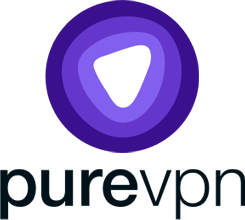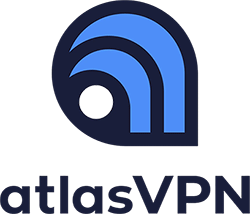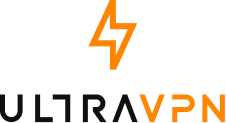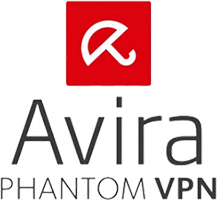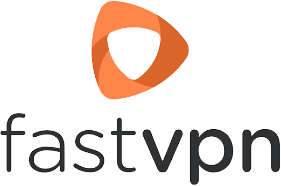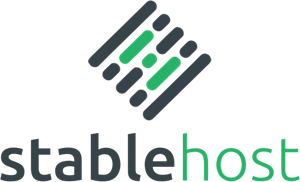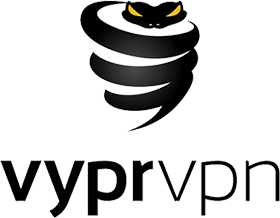Best VPN Services: Top 10 List of Virtual Private Network
1. ExpressVPN
- ExpressVPN is a virtual private network (VPN) service that allows users to securely connect to the internet and protect their online privacy and security.
- It was founded in 2009 and is based in the British Virgin Islands.
- ExpressVPN offers a wide range of server locations, with over 3,000 servers in 160 locations across 94 countries.
- It uses industry-standard encryption protocols, including 256-bit AES encryption and support for multiple VPN protocols, such as OpenVPN, IKEv2, and L2TP/IPsec.
- ExpressVPN also offers additional security features, such as a kill switch, split tunneling, and DNS leak protection.
- It has apps available for a variety of devices and platforms, including Windows, Mac, iOS, Android, Linux, and routers.
- ExpressVPN has a strict no-logs policy, which means it doesn’t collect or store any user data that could be used to identify users.
- It’s a premium VPN service with a higher price point compared to some other VPNs, but it offers high-quality service and a 30-day money-back guarantee.
2. Surfshark
- Surfshark is a virtual private network (VPN) service that helps users protect their online privacy and security by encrypting their internet traffic and masking their IP addresses.
- It was founded in 2018 and is based in the British Virgin Islands.
- Surfshark offers a large and fast-growing network of servers, with over 3200 servers in 65 countries.
- It uses modern encryption protocols, such as AES-256-GCM encryption and support for multiple VPN protocols, including OpenVPN, IKEv2, and Shadowsocks.
- Surfshark also offers additional security features, such as a kill switch, MultiHop, and CleanWeb, which blocks ads, trackers, and malware.
- It has apps available for a variety of devices and platforms, including Windows, Mac, iOS, Android, Linux, and browsers.
- Surfshark has a strict no-logs policy, which means it doesn’t collect or store any user data that could be used to identify users.
- It’s a competitively-priced VPN service with a range of subscription options, and it offers a 30-day money-back guarantee.
3. PureVPN
- PureVPN is a virtual private network (VPN) service that offers users secure and private access to the internet.
- It was founded in 2007 and is based in Hong Kong.
- PureVPN has a large network of servers, with over 6,500 servers in 140 countries.
- It offers a range of encryption protocols, including AES-256 encryption, support for multiple VPN protocols, such as OpenVPN, IKEv2, and L2TP/IPSec.
- PureVPN also offers additional security features such as a kill switch, split tunneling, and DNS leak protection.
- It has apps available for a variety of devices and platforms, including Windows, Mac, iOS, Android, Linux, and routers.
- PureVPN has a zero-logs policy, which means it does not log any user data.
- It is a competitively-priced VPN service with a range of subscription options and a 31-day money-back guarantee.
- PureVPN also offers additional features, such as dedicated IP addresses, port forwarding, and DDoS protection, which can be useful for specific use cases such as online gaming or accessing geo-restricted content.
4. Atlas VPN
- Atlas VPN is a virtual private network (VPN) service that provides users with secure and private internet access.
- It was founded in 2019 and is based in the United States.
- Atlas VPN offers a network of servers in over 40 locations worldwide, with a focus on providing fast and reliable service.
- It uses modern encryption protocols, such as AES-256 encryption, and supports multiple VPN protocols, including IKEv2 and OpenVPN.
- Atlas VPN also offers additional security features, such as a kill switch and DNS leak protection.
- It has apps available for a variety of devices and platforms, including Windows, Mac, iOS, and Android.
- Atlas VPN has a no-logs policy, which means it does not collect or store any user data.
- It offers a free version of the VPN service with limited features and a premium version with additional features and unlimited data usage.
- Atlas VPN is competitively priced compared to other VPN services, and it offers a 30-day money-back guarantee.
5. UltraVPN
- Ultra VPN is a virtual private network (VPN) service that allows users to access the internet securely and privately.
- It was founded in 2020 and is based in the United Kingdom.
- Ultra VPN has a network of servers in over 55 locations worldwide, including countries such as the United States, the United Kingdom, Canada, and Australia.
- It uses modern encryption protocols, such as AES-256 encryption, and supports multiple VPN protocols, including OpenVPN and IKEv2.
- Ultra VPN also offers additional security features, such as a kill switch and DNS leak protection.
- It has apps available for a variety of devices and platforms, including Windows, Mac, iOS, and Android.
- Ultra VPN has a no-logs policy, which means it does not collect or store any user data that could be used to identify users.
- It offers a free trial version of the VPN service with limited features, as well as a premium version with unlimited data usage and additional features.
- Ultra VPN is competitively priced compared to other VPN services, and it offers a 30-day money-back guarantee.
- Avira Phantom VPN is a virtual private network (VPN) service that allows users to access the internet securely and privately.
- It is developed by Avira Operations GmbH & Co. KG, a German cybersecurity company that has been in business since 1986.
- Avira Phantom VPN offers a network of servers in over 50 locations worldwide, including countries such as the United States, Germany, the United Kingdom, and Australia.
- It uses modern encryption protocols, such as AES-256 encryption, and supports multiple VPN protocols, including OpenVPN and IKEv2.
- Avira Phantom VPN also offers additional security features, such as a kill switch and DNS leak protection.
- It has apps available for a variety of devices and platforms, including Windows, Mac, iOS, and Android.
- Avira Phantom VPN has a no-logs policy, which means it does not collect or store any user data that could be used to identify users.
- It offers a free version of the VPN service with limited data usage, as well as a premium version with unlimited data usage and additional features.
- Avira Phantom VPN is competitively priced compared to other VPN services, and it offers a 30-day money-back guarantee.
7. FastVPN
- FastVPN is a virtual private network (VPN) service that provides users with secure and private access to the internet.
- It is developed by Namecheap, a popular domain registrar and web hosting provider.
- FastVPN has a network of servers in over 50 locations worldwide, with a focus on providing fast and reliable service.
- It uses modern encryption protocols, such as AES-256 encryption, and supports multiple VPN protocols, including OpenVPN and IKEv2.
- FastVPN also offers additional security features, such as a kill switch and DNS leak protection.
- It has apps available for a variety of devices and platforms, including Windows, Mac, iOS, and Android.
- FastVPN has a no-logs policy, which means it does not collect or store any user data that could be used to identify users.
- It offers a free trial version of the VPN service with limited features, as well as a premium version with unlimited data usage and additional features.
- FastVPN is competitively priced compared to other VPN services, and it offers a 30-day money-back guarantee.
- StableHost VPN service is designed to provide a secure and private connection for your online activities.
- It VPN service offers strong encryption, which helps protect your data from interception by third parties. Additionally, they offer multiple server locations, which can help you bypass geographical restrictions and access content from different regions.
- StableHost’s VPN service also supports multiple platforms and devices, including Windows, macOS, iOS, and Android.
- They offer an easy-to-use VPN client that allows you to connect to their servers quickly and easily.
- StableHost VPN service does not log your online activities, which means that your privacy is protected.
- Their VPN service does not restrict your bandwidth or data usage, which means that you can use their service for streaming, gaming, and other data-intensive activities without worrying about data caps or throttling.
9. VyprVPN
- VyprVPN is a virtual private network (VPN) service that provides users with secure and private internet access.
- It is developed by Golden Frog, a Swiss-based company that specializes in online privacy and security solutions.
- VyprVPN has a network of servers in over 70 locations worldwide, with a focus on providing fast and reliable service.
- It uses modern encryption protocols, such as AES-256 encryption, and supports multiple VPN protocols, including OpenVPN, L2TP/IPsec, and IKEv2.
- VyprVPN also offers additional security features, such as a kill switch and DNS leak protection.
- It has apps available for a variety of devices and platforms, including Windows, Mac, iOS, and Android.
- VyprVPN has a no-logs policy, which means it does not collect or store any user data that could be used to identify users.
- It offers a free trial version of the VPN service with limited features, as well as a premium version with unlimited data usage and additional features.
- VyprVPN is competitively priced compared to other VPN services, and it offers a 30-day money-back guarantee.
- One unique feature of VyprVPN is its proprietary Chameleon technology, which helps to bypass VPN blocking and ensure that users can access restricted content and websites.
10. StreamLocator
- StreamLocator is not a VPN service but a device that allows users to access geo-restricted content without using a VPN. It works by redirecting a user’s internet traffic through a local IP address in the desired location, thus bypassing geo-restrictions set by streaming services.
- StreamLocator is a plug-and-play device that connects to a user’s router and provides access to streaming content from different regions.
- It supports over 200 streaming services, including Netflix, Hulu, Amazon Prime Video, and BBC iPlayer.
- StreamLocator does not use a VPN, but instead uses a Smart DNS technology to provide access to streaming content from different regions.
- It allows users to switch between different regions seamlessly, without having to disconnect and reconnect to different VPN servers.
- StreamLocator does not encrypt a user’s internet traffic or provide any privacy protection, so it is not a suitable solution for users who require privacy or security online.
- It is competitively priced compared to other streaming solutions and offers a 30-day money-back guarantee.
- StreamLocator is easy to set up and use, with no technical expertise required.
What is Virtual Private Network (VPN)
A Virtual Private Network (VPN) is a way of extending a local area network (LAN) over an existing connection, a wide area network (WAN), such as the Internet, with maintaining confidentiality. A VPN makes it possible to share data between physically separate networks via an existing network, such as the Internet. For example, an employee can log in to the employer’s network via VPN at home. The best known and most common protocol is IPsec. Although nowadays, especially by modern VPNs, the OpenVPN protocol is also frequently used.
Advantages of VPN
The internet connection is fully encrypted. It is not possible for third parties to eavesdrop on internet traffic. Unencrypted internet traffic via an unsecured Wi-Fi network (e.g. a catering business) can be tapped, but this is not possible with a VPN connection. In certain countries such as the US, the internet provider can also analyze and market the surfing history of users (this is not possible in Europe), a VPN prevents this.
A user can easily switch IP addresses through a VPN. A user can thus avoid geoblocking or a firewall. Concrete examples are viewing series that offer streaming services exclusively in one country, and avoiding an IP-based blockade.
Disadvantages of VPN
There are also disadvantages to a connection via VPN. Internet traffic slows down due to the additional detour, and it is an additional attack vector (VPN companies can also spy or get hacked). Company access via VPN is often additionally secured.
Security model
The underlying network used will either be ‘trusted’ or ‘not trusted’ by the VPN. It is advisable to simply not trust the underlying network, especially if it is the Internet. The VPN protocol must then provide technologies to provide security. If one nevertheless trusts the underlying network, it is referred to as a trusted VPN (or an Actual Private Network). In this case, security is completely handled by the underlying network, without its own control options.
Topology
In the first place, the private network will have to be separated from the underlying network by means of a firewall. This module will analyze both incoming and outgoing traffic and stop it if necessary: the module can be considered as a filter. The firewall must be strategically placed in the connection between the private and public network. A firewall provides hardware isolation of the private network to prevent unwanted visitors. It is imperative that openings in the firewall for VPN purposes do not undermine overall security.
Encryption
Encryption is used in numerous protocols to ensure data secrecy. With encryption, the data will be transformed into an unreadable form, the so-called cyphertext. By means of a key, the recipient can then perform a reverse transformation, making the text readable again. This is comparable to a letter written in cipher. Anyone who manages to intercept him will still not be able to read what has been written. The most performing encryption techniques today are 3DES and Advanced Encryption Standard (AES). AES is always preferred for its stronger crypto properties compared to 3DES. 3DES is obsolete and should only be used if there are no options to use AES.
IP address
A VPN connection causes the IP address to change. As a result, hackers and criminals cannot trace who is on their website. Incidentally, changing an IP address also makes computers less easy to hack, so that passwords are less likely to be publicly disclosed.


